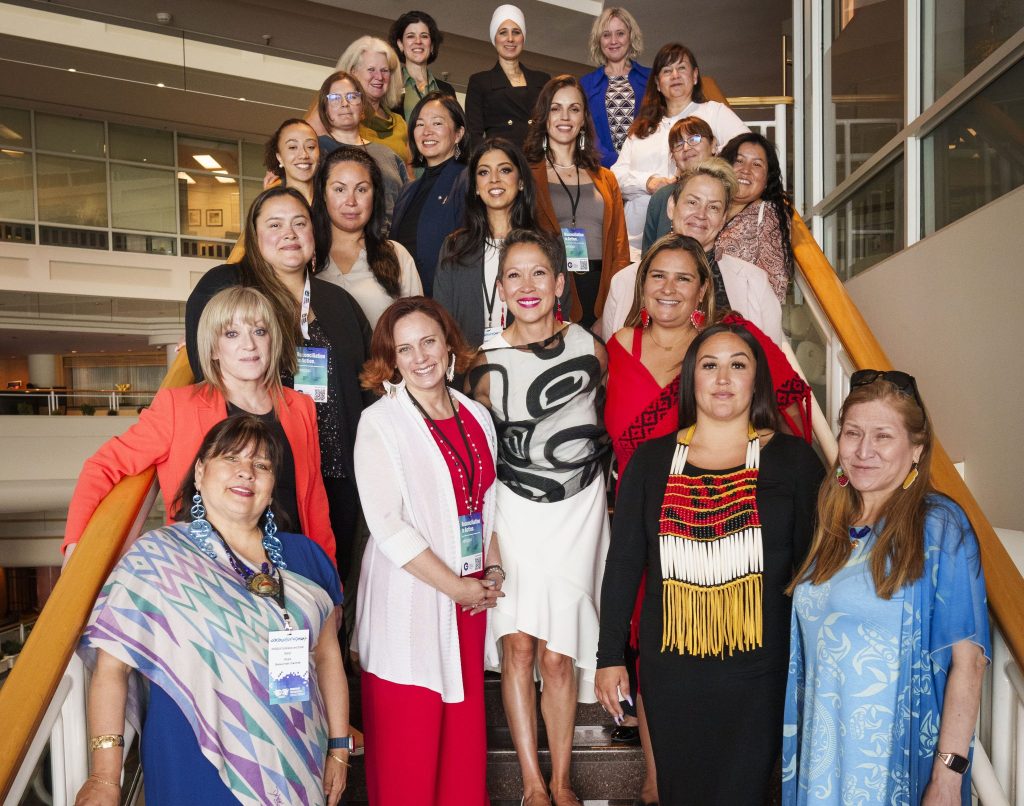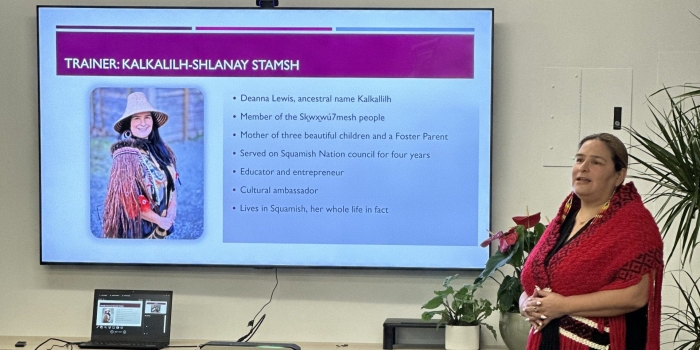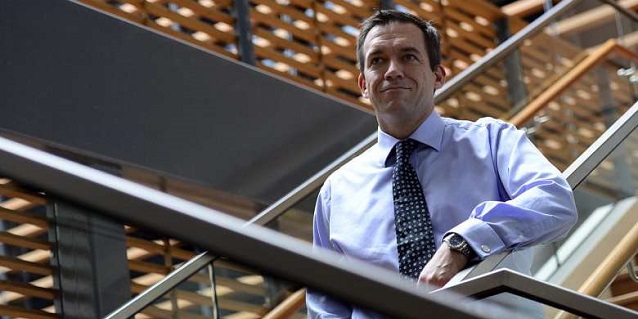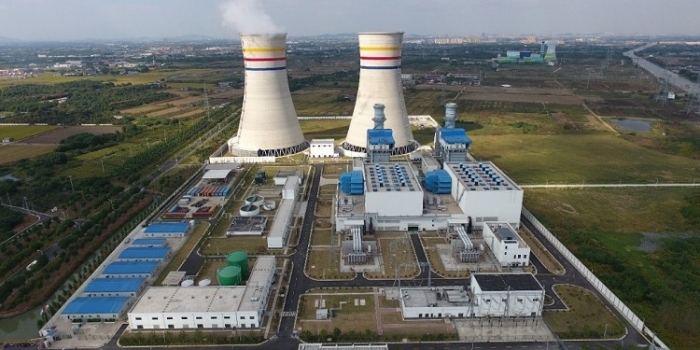Deanna Lewis, a member of the Gender Safety Committee and Lead Gender and Cultural Safety trainer, conducts a training session for WLNG employees
In Canada, many negative impacts of colonisation on Indigenous land, culture and people still persist after hundreds of years and remain at the early stages of being addressed. From the earliest days of planning for the Woodfibre LNG project, the company prioritized establishing deep and authentic relationships and meaningful economic partnerships with Indigenous communities.
On May 14, 2024, Woodfibre LNG set a North American first by establishing a formal, comprehensive plan to protect workers and community members from physical, mental or emotional harm. The Gender and Cultural Safety Management Plan is the first-of-its-kind in the Canadian resource industry and has been designed to ensure a workplace culture free of violence, bullying, intimidation or abuse.
This work stemmed from acknowledging the history of industrial development in Canada and its impacts on Indigenous communities, including women. These were documented in the Calls for Justice from the National Inquiry into Missing and Murdered Indigenous Women and Girls, and the federal Standing Committee on the Status of Women’s report, Addressing Violence Against Indigenous Women and Girls in the Context of Resource Development Projects. These initiatives demonstrated historical ties between both transient workforces and resource extraction industries and violence towards women, specifically Indigenous women.
In 2022, Woodfibre LNG began developing programming to prioritise gender safety and inclusion in the workplace, in worker accommodations and in the community. In the Spring of 2023, Woodfibre LNG became the first project in any sector to fully adopt the Calls for Extractive and Development Industries, resulting from the National Inquiry, and to invite Indigenous women to participate in implementing related programming. Having Indigenous women at the core of this initiative is key given the historic marginalisation of Indigenous people in Canada.
“The participation of Indigenous women in developing gender and cultural safety programming has been vital in ensuring that our initiatives truly meet the concerns and needs of the Squamish Nation and other Indigenous peoples. Beyond their guidance, the active involvement of Indigenous women in training our workforce on gender violence has provided real insight to our employees and creates a more genuine learning environment,” said Christine Kennedy, President of Woodfibre LNG.

Members of the Gender Safety Committee were joined by guests from across the province at a gender safety lunch hosted by the Committee during the recent Indigenous Partnerships Success Showcase event in early June
A Gender Safety Advisory Committee was established, made up of Indigenous and non-Indigenous women, with the mandate to provide direct input on gender safety and related programming, policies and procedures and take a role in implementing related recommendations. The committee has guided Woodfibre LNG in establishing important pillars of its Gender and Cultural Safety plan including:
- Mandatory, in-person cultural awareness and gender safety training delivered by Indigenous trainers for all staff, contractors and suppliers. To date, over 1,000 workers have received this training.
- A foundational Worker Code of Conduct, establishing requirements for respectful behaviour and zero-tolerance for bullying, harassment and discrimination.
- Dedicated positions to champion gender safety and economic inclusion, including Indigenous Floatel Cultural Manager positions, an Indigenous Workforce Development Manager to support, attract and recruit local Indigenous employees, and an Indigenous Business Advocate role to pursue opportunities for Indigenous-owned businesses to work with Woodfibre LNG.
- Providing trainings in personal safety and risk identification for women and girls in Squamish and working with local organizations to support programs for women, with the intent of leaving a legacy of reduced vulnerability and increased personal confidence and security.
- A four-year research project, that will collect and assess data related to gender-based violence, allowing Woodfibre LNG to continually improve and create future best practices for resource projects.
“Participating in this initiative has been a honour,” explained Toni Dumais, a member of the Gender Safety Committee, “It symbolises a transformation in resource development from being primarily consumer driven to one that includes social responsibility. This shift fosters growth and empowerment for all involved.”
By investing in expanding workers’ understanding of harassment and violence and supporting programs that aim to prevent violence, Woodfibre LNG is taking crucial steps in the journey of reconciliation with the Sḵwx̱wú7mesh Úxwumixw (Squamish Nation), the səlilwətaɬ (Tsleil-Waututh) Nation and other Indigenous nations. Woodfibre LNG will continue to grow and evolve its gender and cultural safety programming, with the guidance of the Gender Safety Committee, to ensure that every person can feel safe, secure and respected at our workplaces, regardless of gender or cultural background.
Read more about the Gender and Cultural Safety Management Plan, the Gender Safety Committee and how it works with Woodfibre LNG to set a new standard for gender and cultural safety from Committee member Toni Dumais.







